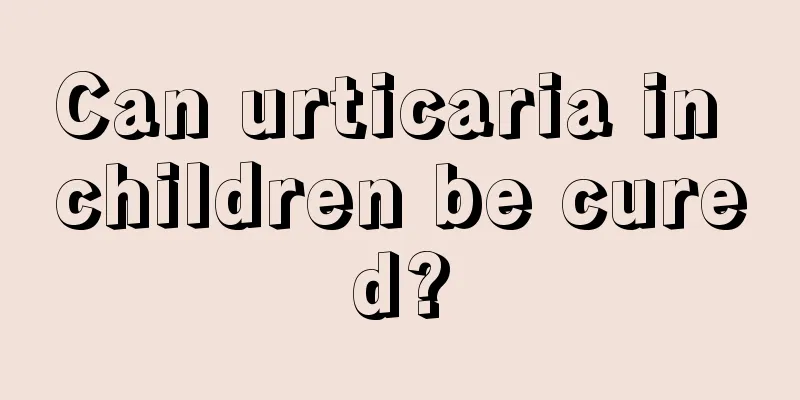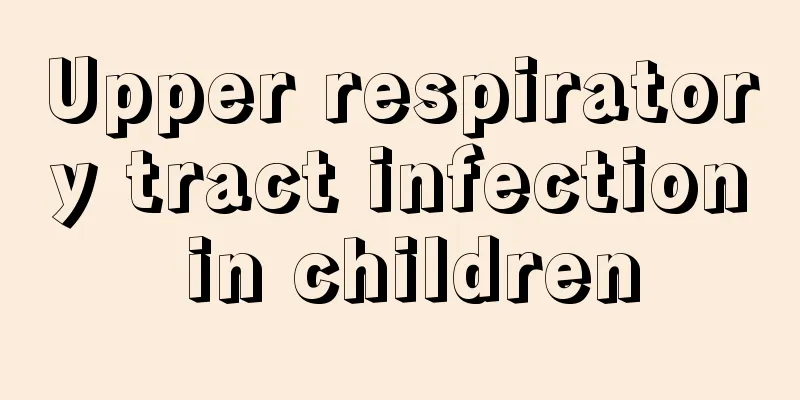Why does my child always feel dizzy?

|
Nowadays, many families have only one child. Although the two-child policy has been opened, there are very few families who want a second child, resulting in a situation where several adults have to revolve around one child. Because every family has a treasure, parents will be very anxious as long as the child has the slightest problem. Some children often say that they feel dizzy, but they don’t have any disease. Why does my child always feel dizzy? Let’s learn about it together~ 1. Overview When children are sick, parents are the ones who are anxious, and they are always worried whether there is something wrong with their children's body. Dizziness in children will not only affect their studies, but also make it difficult for them to concentrate, which will have a great impact on their bodies. So why do children often feel dizzy has become a concern for many parents. Many people in life believe that children often feel dizzy because they overuse their brains, or are too picky about their diet, malnutrition and other reasons, so they give their children food supplements. In fact, dizziness is a common functional brain disorder and one of the common clinical symptoms. It has many causes and is closely related to some diseases such as hypertension and cerebral arteriosclerosis. 2. Steps/Methods: First: Abnormal brain metabolism causes dizziness in children: Some children may experience dizziness and corresponding symptoms due to changes in blood circulation in the brain. In fact, this is related to the degree of vascular hardening. Abnormal brain metabolism can also cause dizziness. In addition, some diseases such as vascular malformations and tumor formation can also cause dizziness and other discomfort symptoms. Second: Dizziness caused by orthostatic adjustment disorder: This phenomenon is mainly obvious when children get up in the morning or stand up from a squatting position. Generally speaking, orthostatic adjustment disorder is not an organic disease of the heart, brain and other parts of the body. This disease will gradually improve or heal with age, so if parents help their children adjust their lifestyles, they can recover their health as soon as possible. Third: Sinusitis may cause dizziness: This phenomenon is more common after repeated upper respiratory tract infections. Children may have headaches, dizziness, and loss of interest in studying, etc., which are often more obvious in the morning. The frontal X-ray of the sinuses can help with diagnosis, but it is recommended to go to the hospital for diagnosis and then make an appropriate treatment plan. 3. Notes: I believe you already have a certain understanding of why children often feel dizzy. In fact, there are many reasons that cause children to feel dizzy, and parents need to learn more about them. If dizziness is accompanied by any other symptoms, you must consult a doctor; but if the dizziness is not caused by a disease, you do not need to see a doctor to get better, just pay more attention to adjusting your lifestyle. |
<<: 10-year-old child often has headaches?
>>: Symptoms of Japanese encephalitis in children
Recommend
The dangers of neonatal hematoma
It is not uncommon for a newborn to have a hemato...
Peeling skin on child's feet
If a child has peeling feet, parents will be quit...
How to treat children's swollen tonsils?
People's tonsils often become swollen. If a c...
Why does the child's head sweat?
The situation where children often sweat on their...
What are the six items of pediatric endocrinology?
Whether adults or children, whether male or femal...
Causes of mild cerebral palsy in children
Cerebral palsy is not unfamiliar to everyone, so ...
What is the most effective food for children with poor absorption?
Children are the hope of every family and the tre...
What is physiological jaundice in children?
Nowadays, many children will have symptoms of phy...
What to do if your baby has a high fever in the middle of the night
Every baby will always have some health problems ...
What causes early teething in babies?
The baby is the apple of the parents' eyes, a...
Symptoms of a fever
Fever is not only caused by some colds, it may be...
What causes left chest pain in children?
There are many common problems, and there are goo...
What subject is not allowed for children to pass in pronunciation?
The child is too young, and the various organs of...
What to do if your child has a poor physique
For parents, children can be said to occupy a lar...
What should I do if my baby always has a fever?
There are many reasons why children have recurren...









